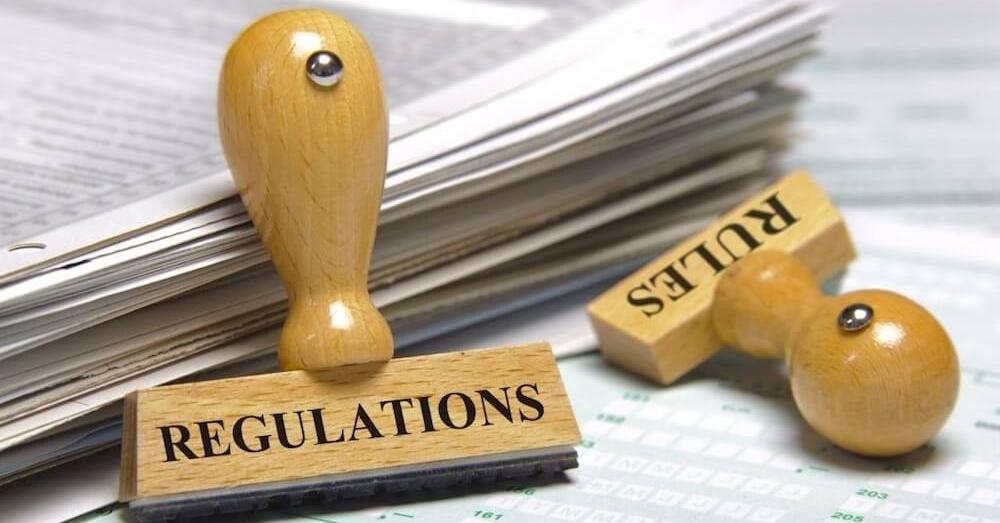Trading isn’t a free-for-all. It’s a structured environment with rules and regulations in place to keep things fair and stable.
Think of these rules as the boundaries of the trading playground, ensuring everyone plays ethically, transparently, and within the lines.
In this article, we’ll take a closer look at the legal side of trading regulations. We’ll see what they are, why they’re important, and how they affect every trading platform.
Key Regulatory Guidelines for Traders
Registration and Licensing Requirements
Think of trading like driving a car. You need a license to operate a vehicle, and the same goes for trading. This process is a public declaration that you are prepared to play by the established rules and regulations, a mark of commitment to ethical trading practices.
Anti-Money Laundering (AML) Regulations
Anti-Money Laundering (AML) regulations serve as a shield against illicit financial activities. In simpler terms, it prevents criminals from sneaking their ill-gotten gains into the market, keeping things clean and safe for everyone.
Know Your Customer (KYC) Procedures
Another crucial facet is the Know Your Customer (KYC) procedure. In a team sport, you want to know who you’re playing with, right? KYC is like that. It ensures everyone in the trading game is a legitimate player with no hidden agendas or shady pasts.
Securities Laws and Trading
Securities laws are the rulebook that governs what is being traded. One of the things that these laws help to curb is insider trading.
Imagine someone having secret information about the market that others don’t. That’s insider trading, and it’s illegal because it gives that person an unfair advantage. It’s like playing a game with someone who knows all the answers beforehand!
Market Manipulation Prevention
There are situations where someone could create a false or misleading impression of supply, demand, or price to benefit themselves. That’s market manipulation right there. And it’s a serious offense that disrupts the integrity of trading.
Not only can it distort the normal functioning and operation of the markets, but the rights of other traders and the public will also be endangered.
This is why regulatory bodies have instituted prohibitions against such manipulative practices, acting as vigilant referees to ensure a fair and honest trading field.
Fraud Prevention
In tandem with market manipulation prevention, regulatory measures to prevent fraud are robustly enforced.
The goal is simple: to guarantee that every participant in the trading game plays by the rules and doesn’t resort to deceitful tactics.
And, just like in any game, there are penalties for those who choose to breach the rules—a necessary deterrent to maintain the sanctity of the marketplace.
Specific Trading Rules
Remember the team sport analogy we used before? Well, just like different sports have their own specific rules, different types of trading have their own unique regulations. These rules are designed to keep things fair, stable, and efficient for everyone involved.
Let’s look at some examples of these specific rules:
Listing requirements
These are the rules that require the instruments to meet specific criteria. Such criteria may include the size, the quality, and the performance. This is done so they can be admitted and traded on one particular system or market.
Trading hours
For the stability and efficiency of the trading markets to be improved, rules on trading hours are needed. They specify the periods and intervals that you can trade. As such, the trading process can be accessible and convenient.
Trading limits
These regulations specify the maximum or minimum amount, quantity, price, or value of the instruments or the orders that can be traded. With trading limits, you can prevent excessive or abnormal trading.
Trading fees
These rules clearly state the charges or commissions that are applied to trading activities. The main aim is to cover the costs and expenses of the system or market operators, intermediaries, and authorities.
Technology and Trading Platforms Compliance
In trading, technology is as much a player as the individuals participating.
Cybersecurity regulations are the virtual shields that protect the integrity and confidentiality of the trading infrastructure.
Just as you wouldn’t want your favorite video game to be hacked, traders and investors expect a secure digital environment.
Compliance With Electronic Trading Rules
Compliance with electronic trading rules ensures that the virtual playing field remains equitable and accessible to all. It’s about creating a digital space where the rules of engagement are clear and everyone has a fair shot at success.
High-Frequency Trading
The rise of high-frequency trading adds another layer to the regulatory framework. These regulations ensure that even in the fast-paced world of algorithmic trading, there is a level playing field.
It rules out unfair advantages and promotes an environment where success is determined by skill and strategy rather than speed alone.
Conclusion
The regulatory landscape in trading plays a vital role in maintaining the excitement, fairness, and safety of the trading game. Though they might seem like a lot, think of trading regulations as the invisible referees, diligently overseeing the activity to ensure that it remains fair and safe for everyone involved.







